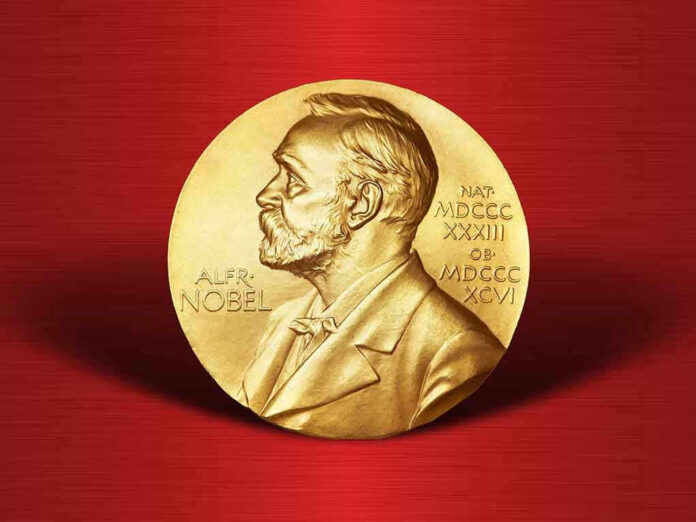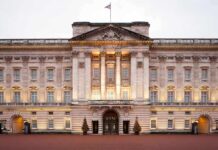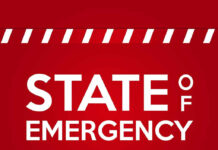Seven nations are backing Donald Trump’s unprecedented 2025 Nobel Peace Prize nomination, marking a dramatic shift in global recognition for American leadership and raising questions about the integrity of international awards.
Story Snapshot
- At least seven countries across three continents have publicly endorsed or nominated Trump for the Nobel Peace Prize in 2025.
- The White House is promoting these endorsements to solidify Trump’s image as a global peacemaker and highlight a reversal from previous U.S. foreign policy approaches.
- Multiple historic ceasefires—including India-Pakistan, Israel-Iran, and Armenia-Azerbaijan—have been brokered or mediated by Trump.
- Expert opinion remains split over the durability and motives of these peace agreements, fueling debate about the Nobel Peace Prize’s standards and credibility.
Record International Endorsements for Trump’s Nobel Bid
In a historic development, at least seven nations from the Middle East, Asia, and Africa have publicly endorsed or formally nominated President Donald Trump for the 2025 Nobel Peace Prize. Countries including Armenia, Azerbaijan, Pakistan, Israel, the Democratic Republic of Congo, Cambodia, and Rwanda have credited Trump with directly brokering or mediating ceasefires and peace agreements in their regions. These endorsements underscore a dramatic shift in how U.S. leadership is perceived abroad, contrasting sharply with the globalist and interventionist approaches that previously dominated American foreign policy.
The White House has actively celebrated and promoted these endorsements, using media events and official statements to position Trump as a “President of Peace.” Administration officials argue that the breadth of international support validates Trump’s direct negotiation style and America-first principles, sharply rebutting critics who once dismissed his diplomatic efforts as divisive or erratic. This campaign stands in stark contrast to prior administrations, which often drew criticism for appeasement or for entangling the U.S. in protracted foreign conflicts without clear benefit to American interests.
Historic Peace Agreements in Volatile Regions
Trump’s diplomatic interventions have produced a series of headline-making ceasefires and peace deals throughout 2025. In May, he was credited with brokering a ceasefire between India and Pakistan, two nuclear-armed rivals with a history of deadly border clashes. By June, Trump had mediated an end to the “12 Day War” between Israel and Iran—one of the most dangerous flare-ups in recent Middle Eastern history. Later that month, his efforts led to a peace agreement between Rwanda and the Democratic Republic of Congo, bringing hope to a region plagued by decades of violence. In August, Armenia and Azerbaijan jointly endorsed Trump for the Nobel Peace Prize following a landmark agreement, while Cambodia nominated him after he resolved a long-standing border dispute with Thailand.
These outcomes are being touted as proof that direct, America-first engagement can deliver what years of globalist negotiation failed to achieve: the cessation of hostilities in some of the world’s most volatile regions. Many Americans see these victories as a powerful repudiation of the previous administration’s indecisiveness and diplomatic overreach, which they blame for emboldening adversaries and neglecting U.S. interests.
Debate Over Nobel Criteria and Political Motives
The surge of public endorsements has prompted intense discussion about the Nobel Peace Prize’s standards and political neutrality. Supporters argue that Trump’s “decisive action” and willingness to challenge diplomatic orthodoxy produced tangible results—saving lives and restoring American prestige. They highlight the opening of new diplomatic channels and the cessation of violence as achievements worthy of the Nobel’s highest honor.
However, expert opinion is divided. Some scholars and analysts contend that the agreements may prove fragile, characterizing them as symbolic gestures more focused on optics than on building sustainable peace. Critics also question whether the flurry of public endorsements reflects genuine international appreciation or is partly intended to curry favor with the U.S. and signal alignment with Trump’s administration. The Nobel Committee, for its part, maintains strict confidentiality but faces mounting public and political pressure as the October 10 announcement approaches.
Implications for U.S. Influence and the Prize’s Credibility
Short-term, these endorsements have elevated Trump’s international profile and may increase U.S. diplomatic leverage in key regions. If awarded, the Nobel Peace Prize would not only cement Trump’s legacy as a peacemaker but could also reshape perceptions of American leadership. The ripple effects could extend to future Nobel nominations, encouraging a shift toward recognizing high-profile, direct mediation over behind-the-scenes diplomacy.
Yet the episode also exposes deep divides, both internationally and at home. While many Americans welcome the restoration of strong, values-based leadership, critics warn that politicizing the Nobel process could undermine its credibility and fuel further polarization. The 2025 Nobel Peace Prize will thus not only reflect on its recipient but could redefine the standards by which global peacemaking is judged.
Sources:
Trump nominated for 2025 Nobel Peace Prize for historic Israel-Iran ceasefire
Trump’s Nobel nomination is rewarding optics over peace?
L’Empire, c’est la paix: The Trump campaign for the Nobel Peace Prize











